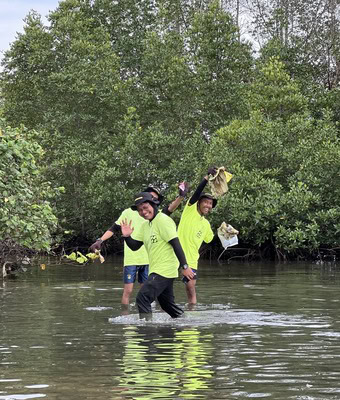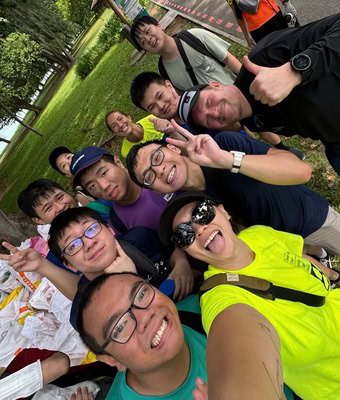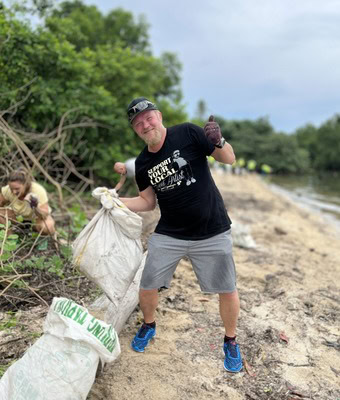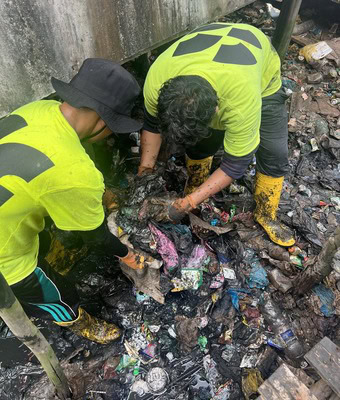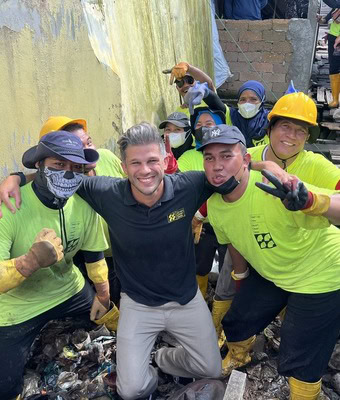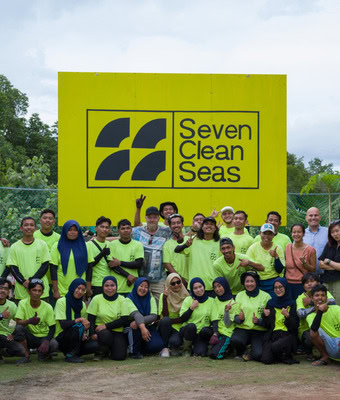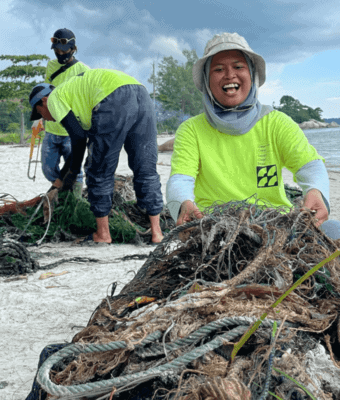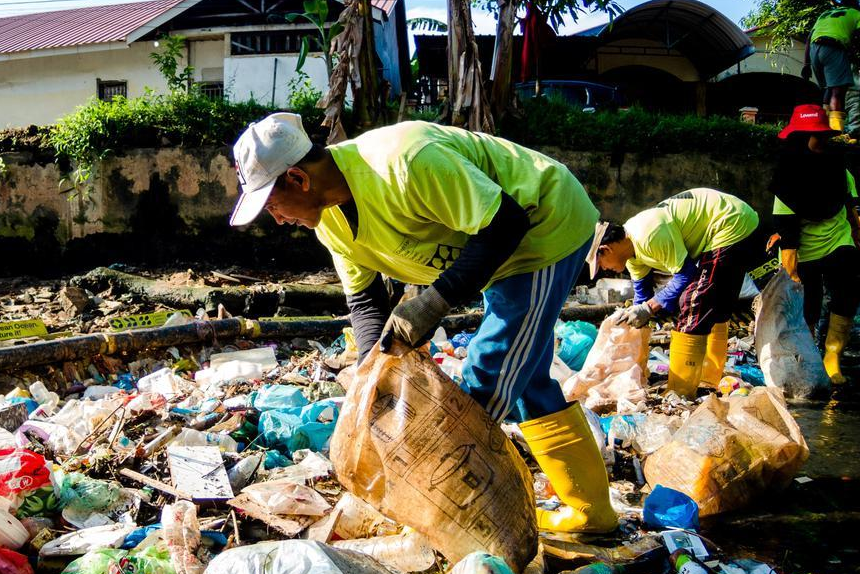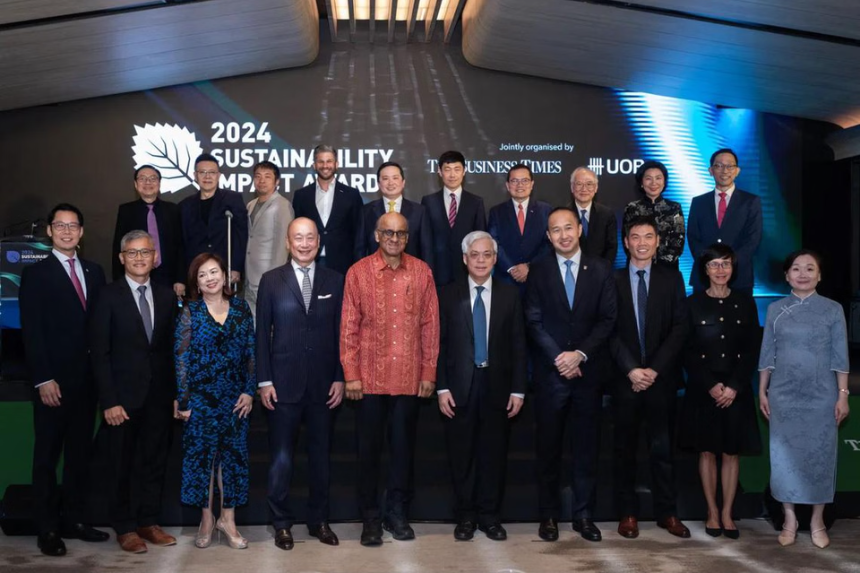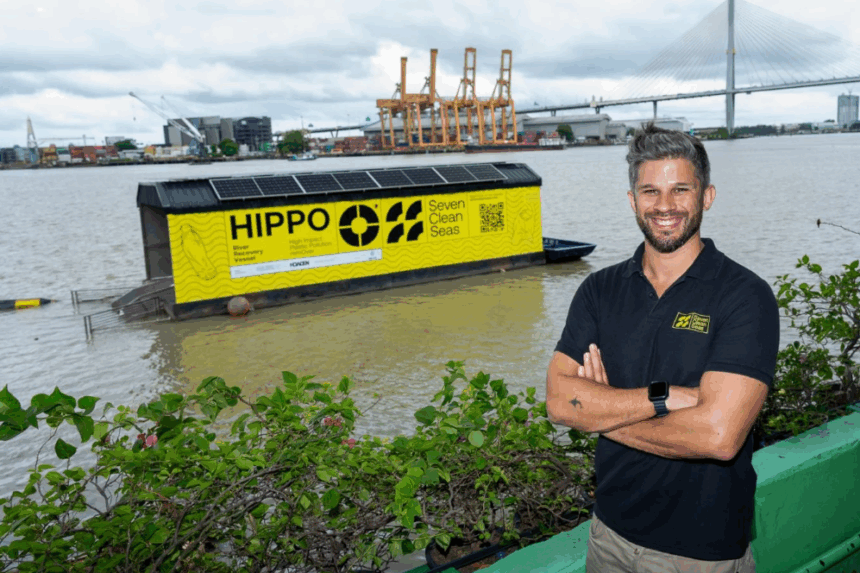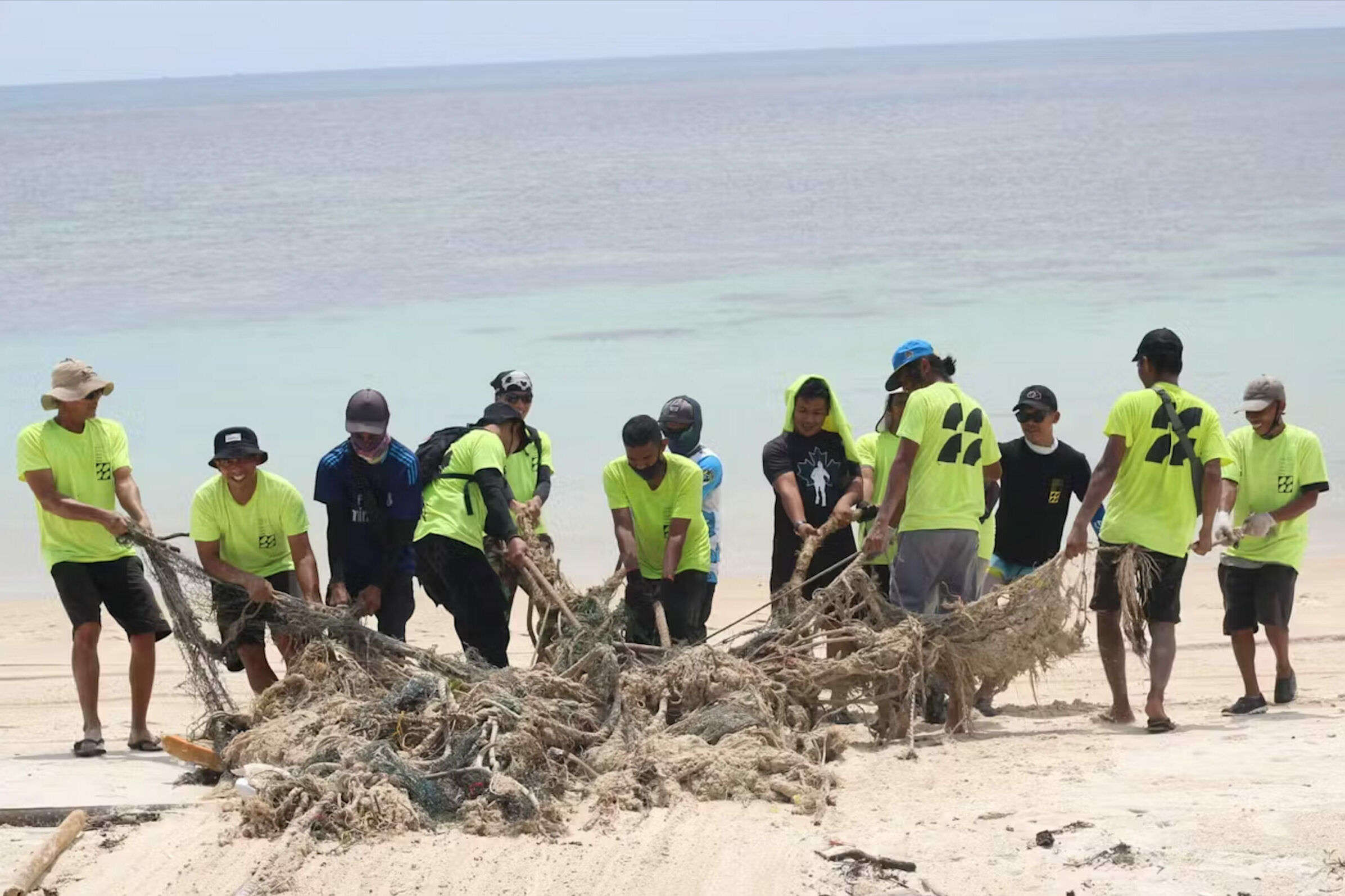Plastic-free Oceans with Seven Clean Seas
Since 2021, ECCA has been a steadfast supporter of Seven Clean Seas, beginning with a capacity-building grant that laid the foundation for future growth. This initial support was followed by two additional development grants, culminating in a significant impact-first investment made through the ECCA Trust in 2023. ECCA’s commitment to Seven Clean Seas has enabled remarkable progress in ocean waste removal and innovation in recycling.
Challenge
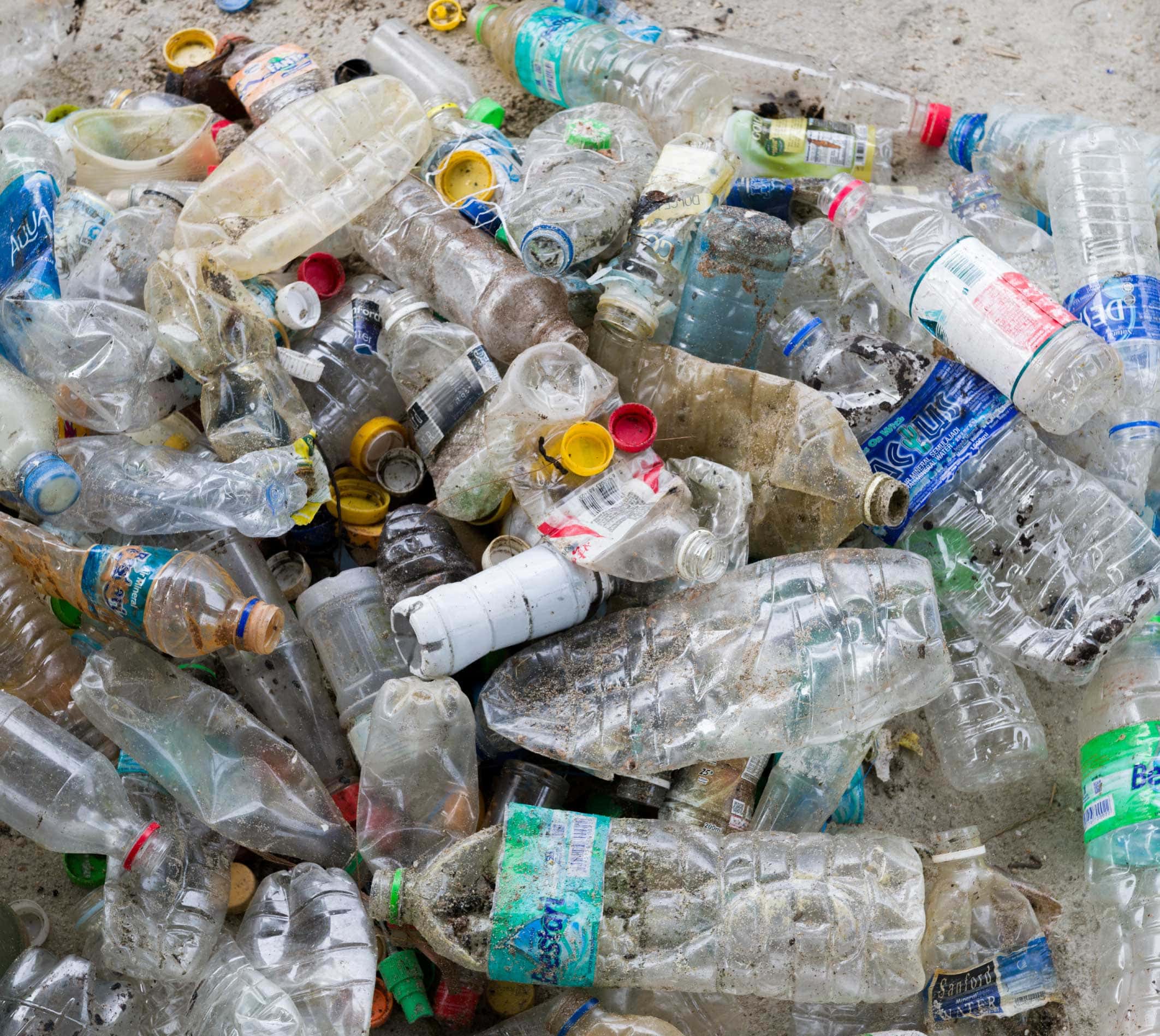 Photo by ECCAPhoto by ECCA
Photo by ECCAPhoto by ECCA11 million metric tons of plastic enter the ocean every year. This staggering amount of waste poses a severe threat to marine life and ecosystems. Plastic can take between 500-1000 years to degrade, often breaking down into microplastics that never fully disappear. These tiny particles are ingested by marine animals, entering the food chain and leading to disastrous consequences for the health of our planet and all its inhabitants. Currently, there are about 50-75 trillion pieces of plastic and microplastics in the ocean, causing immense harm such as suffocation, entanglement, and internal injuries to marine animals. Alarmingly, 17% of the species affected by plastic pollution are on the International Union for Conservation of Nature Red List of Threatened Species. Microplastics have infiltrated our food chain, being found in drinking water, salt, and even the soil where we grow our vegetables. This pervasive pollution not only threatens ocean health but also impacts food safety, human health, and contributes to climate change.
Approach
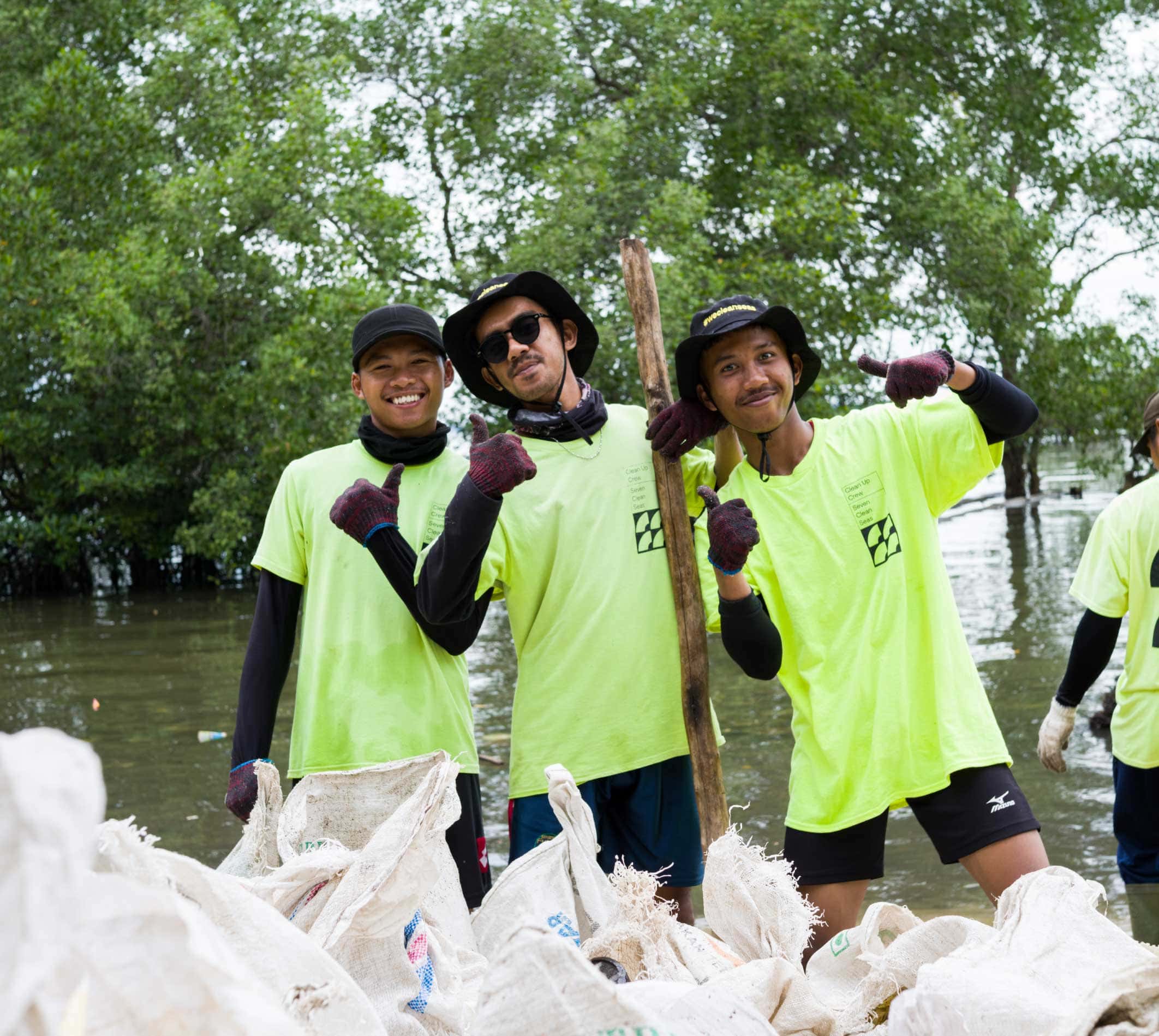 Photo by ECCAPhoto by ECCA
Photo by ECCAPhoto by ECCASeven Clean Seas adopts a holistic approach to tackling plastic pollution, combining environmental restoration with social empowerment:
1) Large-Scale Clean-Up Operations
Seven Clean Seas conducts extensive clean-ups in rivers and coastal areas to remove plastic waste directly from the environment. Currently, their operations are concentrated in Indonesia, Singapore, and Thailand.
2) Recycling and Circular Economy Initiatives
Collected waste is sorted for recycling or sold to recyclers. Unsold low-value plastics are transformed into valuable resources like bricks and building materials.
3) Innovative Finance Mechanism
Waste collected is certified by third parties like Verra or Ocean Bound Plastic. These certifications are sold as plastic credits, generating funds to pay clean-up crews and reinvest in further projects. This innovative financing addresses the funding gaps in waste management.
4) Education and Awareness Programs
Seven Clean Seas runs programs in schools and communities to promote plastic reduction and supports businesses in measuring and reducing their environmental footprint.
Seven Clean Seas’ innovative approach not only removes plastic from oceans but also creates sustainable green jobs, engages communities, and drives systemic change in waste management practices.
Outcomes
Seven Clean Seas has set themselves up to achieve the following by 2025:
Relevant Articles
Stories & Lessons
Join Seven Cleans in the fight against plastic waste!
Corporates can conduct waste audits, reduce and offset their plastic footprint, and participate in impactful beach clean-ups. Partners are invited to collaborate on innovative recycling solutions, while donors can invest in waste collection projects that enhance sustainability and support coastal communities. Let’s work together towards plastic-free seas!
